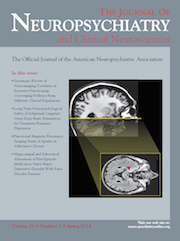Bupropion-Related Sexual Dysfunction and Possible Management in a Fresh Patient With Major Depressive Disorder
Case Report
Mr. A is a patient with fresh major depressive disorder (MDD), who had symptoms of depressed mood, suicide ideation, insomnia, worthlessness, lack of interest, and lack of energy for 3–4 months [Hamilton Rating Scales for Depression (HDRS) scores: 26]. However, he did not complain of any sexual dysfunction [Arizona Sexual Experience Scales (ASEX) scores: 9]. He started to receive bupropion 150 mg/day and hypnotics for the above symptoms. After 2 weeks of 150 mg/day treatment, the dose of bupropion was increased to 300 mg/day because of continued significant MDD symptoms (HDRS scores: 23). After another 4 weeks of bupropion 300 mg/day treatment, his MDD symptoms showed significant improvement (HDRS scores: 13). However, sexual dysfunction was noted at the same time (ASEX scores: 21; with most significant impairment of erection; erection item score: 5). He started to receive sildenafil 100 mg/day for erectile dysfunction. He felt more satisfied with his sex life following the combined treatment of sildenafil and bupropion for 2 weeks (ASEX scores: 12; HDRS scores: 10). No intolerable side effects were mentioned following the combined therapy.
Discussion
Sexual dysfunction is a common side effect of serotoninergic antidepressants, ranging from 58% to 73% and a trend in men.1 However, it is rare in bupropion treatment, which can even relieve sexual dysfunction of serotoninergic antidepressant.2 Bupropion is effective for MDD and seems to be a reasonable choice for this patient.3 If a patient with MDD had suffered from sexual dysfunction because of antidepressants, bupropion is an alternative4 and has lowest incidence of sexual dysfunction.5 Conversely, this patient complained of erectile dysfunction with clinical response of MDD symptoms under bupropion for 6 weeks. The impact of depression symptoms on erectile dysfunction can be excluded because there was no sexual dysfunction at baseline and responding status for depression. The erectile dysfunction of this patient might be related to bupropion treatment. However, the treatment effects of bupropion for the side effects of sexual dysfunction have been criticized in several studies. Masand et al. reported that bupropion did not show superiority over placebo for the treatment of serotoninergic antidepressant-related sexual dysfunction.6 Rudkin et al. also criticized the evidence of bupropion augmentation for antidepressant-related sexual dysfunction seem inadequate and limited.7 A similar conclusion also appears in another review study.8 This patient might have dopamine, nitric oxide, and other neurotransmitter system alterations after bupropion treatment. The alterations of the transmitters might be associated with erectile dysfunction in this patient.9 Sildenafil, a kind of phosphodiesterase inhibitor, might enhance the mesolimbic dopaminergic system and correct inadequate release of dopamine in the limbic system, which might be related to improvement of erectile dysfunction in this case.10 The augmentation of sildenafil can be a possible solution for bupropion-related sexual dysfunction in patients with MDD.
1 :
2 : Antidepressant-related erectile dysfunction: management via avoidance, switching antidepressants, antidotes, and adaptation. J Clin Psychiatry 2003; 64(Suppl 10):11–19Medline, Google Scholar
3 : Spotlight on bupropion in major depressive disorder. CNS Drugs 2008; 22:613–617Crossref, Medline, Google Scholar
4 : Major depressive disorder, antidepressants, and sexual dysfunction. J Clin Psychiatry 2006; 67(Suppl 6):33–37Medline, Google Scholar
5 : 15 years of clinical experience with bupropion HCl: from bupropion to bupropion SR to bupropion XL. Prim Care Companion J Clin Psychiatry 2005; 7:106–113Crossref, Medline, Google Scholar
6 : Sustained-release bupropion for selective serotonin reuptake inhibitor-induced sexual dysfunction: a randomized, double-blind, placebo-controlled, parallel-group study. Am J Psychiatry 2001; 158:805–807Crossref, Medline, Google Scholar
7 : Strategies for managing sexual dysfunction induced by antidepressant medication. Cochrane Database Syst Rev 2004; 4:CD003382Medline, Google Scholar
8 : Strategies for managing antidepressant-induced sexual dysfunction: systematic review of randomised controlled trials. J Affect Disord 2005; 88:241–254Crossref, Medline, Google Scholar
9 : Central control of penile erection: role of the paraventricular nucleus of the hypothalamus. Prog Neurobiol 2005; 76:1–21Crossref, Medline, Google Scholar
10 : Phosphodiesterase type 5 inhibitors facilitate noncontact erections in male rats: site of action in the brain and mechanism of action. J Sex Med 2009; 6:2680–2689Crossref, Medline, Google Scholar



